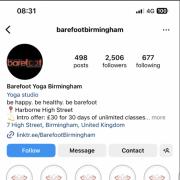
So with the vaccine rollout having recently surpassed 34 million first doses in the United Kingdom, things seem to be looking a little more positive on the COVID-19 front than when I started writing these articles. Of course, we aren’t out of the woods yet, with deaths and cases of coronavirus still frequently occuring-in fact, even after the country and eventually the world do at least physically move on from the pandemic, we will be faced with entirely different issues, not least of which climate change.
I would guess that at least some of the readers of this article have plans for when all lockdown restrictions will be lifted. Maybe you’ll eat at a GBK that hasn’t been shut down. Maybe you’ll go on a road trip. Maybe you’ll take a flight abroad-oh, wait, those are all environmentally unfriendly activities. It’s surprising how many of our favourite activities cause side effects such as releasing fossil fuels, in particular when travelling. But let’s examine what we can do on a smaller scale to help the environment; here are 4 things that I have personally tried in order to do so, and my conclusion on how useful they are.
USING ECOSIA AS A SEARCH ENGINE
Verdict: Helpful (to some extent)
There is a question as to how reliable Ecosia is in the results they provide, but it is a useful tool in aiding the environment nonetheless. Marketed as “the search engine that plants trees”, the company donates 80% of its revenue to reforestation charities, and in my opinion, the benefits (of your searches contributing to this cause) outweigh the inconveniences (of potentially slow results or missing information); if you can’t find the information you’re looking for quickly, then it’s better to just search on Google instead.
USING A BAMBOO TOOTHBRUSH
Verdict: Not Helpful
….for me, as my dentist recommended me an electric toothbrush. But if you’re able to use one, sure. It’s a worrying fact that 4.5 billion plastic toothbrushes are thrown away every year, so purchasing one made of biodegradable material could help reduce the ocean’s plastic waste and environmental pollution, without compromising your teeth.
WEARING BAMBOO SOCKS
Verdict: Helpful (to some extent)
You may think of tall bamboo sticks when picturing bamboo, but in fact I noticed when wearing bamboo socks that they were extremely comfortable and more soft than regular socks. This, and the fact that it is an organic, environmentally friendly clothing material, make them an ideal way to reduce your carbon footprint, though the socks won’t last particularly long so it’s a good idea to buy them in bulk or refresh your supply every few months.
REDUCING MEAT CONSUMPTION
Verdict: Very Helpful
Becoming vegetarian or vegan is an excellent way to help the environment, though this is one habit I have been unable to complete so far, and instead have just tried to reduce the amount of meat I eat in general. I usually attempt to have at least 1 day a week without eating any meat and hope to move on to 2, however even if you forget to do so or are unable to commit to this yet, simply starting with replacing meals that include meat with vegetarian options is a decent beginning-there is usually a good vegetarian substitute for just about any meat you can think of.





























